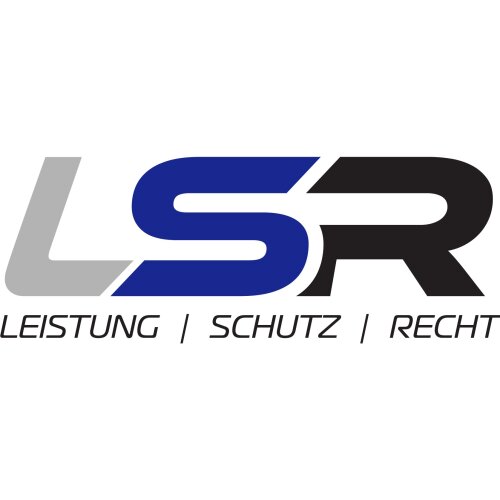Best Public-Private Partnerships (PPP) Lawyers in Austria
Share your needs with us, get contacted by law firms.
Free. Takes 2 min.
Or refine your search by selecting a city:
List of the best lawyers in Austria
About Public-Private Partnerships (PPP) Law in Austria
Public-Private Partnerships (PPP) are collaborative agreements between government entities and private sector companies to finance, construct, and operate projects or services that benefit the public, such as infrastructure, transportation, healthcare, or education. In Austria, PPP projects have become an essential tool for delivering economic growth and innovation, often allowing the public sector to leverage private expertise and resources for complex undertakings. The legal framework for PPP in Austria is shaped by both national laws and European Union directives, focusing on transparency, competition, and public benefit.
Why You May Need a Lawyer
Engaging in a PPP in Austria can be intricate and challenging due to regulatory requirements, contract complexity, and potential risks. Here are common situations where individuals or organizations may require legal assistance:
- Navigating the bidding and procurement process for public contracts
- Drafting and negotiating PPP agreements and subcontracts
- Ensuring compliance with local, national, or EU regulations
- Managing risk allocation, funding, and project finance
- Resolving disputes between public authorities and private partners
- Advising on matters such as intellectual property, land use, or liability
A lawyer with expertise in Austrian PPP law can help ensure that clients understand their rights, obligations, and risks, and can help protect their interests throughout the lifecycle of a PPP project.
Local Laws Overview
PPP projects in Austria are influenced by a combination of Austrian national legislation and European Union law. Some key aspects include:
- Public Procurement Law: The Austrian Public Procurement Act (Bundesvergabegesetz) sets out competition, transparency, and non-discrimination rules for awarding public contracts, including those for PPPs. In many cases, EU procurement directives also apply.
- Contractual Framework: There is no single PPP law in Austria. Instead, PPP projects are governed by a variety of civil law, administrative law, and sector-specific regulations. Contract structuring, risk allocation, and long-term obligations are handled by tailor-made agreements.
- Financing: Austrian PPPs often use project finance structures, which may involve both public and private funding. Financing arrangements must comply with national banking and finance regulations.
- Sectoral Regulations: Some projects may be subject to additional rules, such as environmental, energy, or infrastructure regulations.
- Dispute Resolution: Disputes in PPP projects can be resolved through litigation, arbitration, or alternative dispute resolution mechanisms, depending on contract terms.
A lawyer’s input is crucial to navigate the legal landscape, ensure compliance, and create robust agreements that reflect the project goals and legal requirements.
Frequently Asked Questions
What projects are most often delivered by PPP in Austria?
PPP arrangements are commonly used in Austria for infrastructure projects like roads, hospitals, schools, energy facilities, and public transportation systems.
What is the typical structure of a PPP contract in Austria?
Austrian PPP contracts outline the allocation of responsibilities, risks, and rewards between the public and private partners, including design, construction, financing, operations, and maintenance.
Do PPP arrangements in Austria have to comply with EU laws?
Yes, in most cases EU public procurement directives and competition rules apply, especially for projects above certain thresholds or involving cross-border interests.
How are risks allocated in Austrian PPP projects?
Risks are typically assigned to the party best able to manage them, based on negotiation. Legal, financial, and operational risks are allocated through the contract.
How are disputes in a PPP project resolved?
Disputes may be resolved through the Austrian courts, arbitration, or alternative dispute resolution, depending on the contract terms and the nature of the dispute.
Is public consultation required before entering a PPP?
For many PPP projects, especially in the infrastructure sector, public consultation or hearings may be required as part of environmental or planning permission processes.
What are the key benefits of PPP for the public sector in Austria?
PPP enables the public sector to access private capital, technical expertise, and innovation. It also helps spread financial risk and increases efficiency in project delivery.
What is the typical duration of a PPP contract?
PPP contracts usually last from 15 to 30 years, depending on the nature and scale of the project and the required return on investment.
How is value for money ensured in a PPP?
Value for money is typically secured through competitive procurement, transparent negotiation, and ongoing performance monitoring throughout the life of the project.
Is it possible for SMEs to participate in PPP projects?
Yes, small and medium-sized enterprises can participate as direct bidders, subcontractors, or as part of consortia, though large PPP projects may require significant resources.
Additional Resources
Below are some useful resources for those seeking more information or support regarding Public-Private Partnerships in Austria:
- The Austrian Federal Ministry for Climate Action, Environment, Energy, Mobility, Innovation and Technology (BMK) provides guidance on infrastructure and PPP projects.
- The Austrian Procurement Agency (BBG) offers advice and templates for public contract procedures.
- The Austrian Chamber of Commerce (WKO) provides information and support on PPP opportunities and regulations for businesses.
- The European PPP Expertise Centre (EPEC) gives policy and legal advice, case studies, and technical guidance at the EU level.
- The Austrian Bar Association (ÖRAK) can help you find specialized lawyers in PPP law.
Next Steps
If you believe that a Public-Private Partnership may be suitable for your project or if you need legal assistance with an ongoing PPP, consider the following steps:
- Define your project goals, timelines, and needs.
- Gather all relevant documentation such as project plans, feasibility studies, and financing arrangements.
- Consult with a lawyer who specializes in PPP law and public procurement in Austria.
- Assess compliance requirements and potential risks before entering negotiations.
- Engage expert legal support for contract drafting, risk allocation, and dispute resolution.
- Monitor ongoing compliance and performance once the PPP is operational.
Early legal guidance can help ensure a successful partnership, manage risks, and provide peace of mind for all parties involved in a PPP project in Austria.
Lawzana helps you find the best lawyers and law firms in Austria through a curated and pre-screened list of qualified legal professionals. Our platform offers rankings and detailed profiles of attorneys and law firms, allowing you to compare based on practice areas, including Public-Private Partnerships (PPP), experience, and client feedback.
Each profile includes a description of the firm's areas of practice, client reviews, team members and partners, year of establishment, spoken languages, office locations, contact information, social media presence, and any published articles or resources. Most firms on our platform speak English and are experienced in both local and international legal matters.
Get a quote from top-rated law firms in Austria — quickly, securely, and without unnecessary hassle.
Disclaimer:
The information provided on this page is for general informational purposes only and does not constitute legal advice. While we strive to ensure the accuracy and relevance of the content, legal information may change over time, and interpretations of the law can vary. You should always consult with a qualified legal professional for advice specific to your situation.
We disclaim all liability for actions taken or not taken based on the content of this page. If you believe any information is incorrect or outdated, please contact us, and we will review and update it where appropriate.
Browse public-private partnerships (ppp) law firms by city in Austria
Refine your search by selecting a city.














